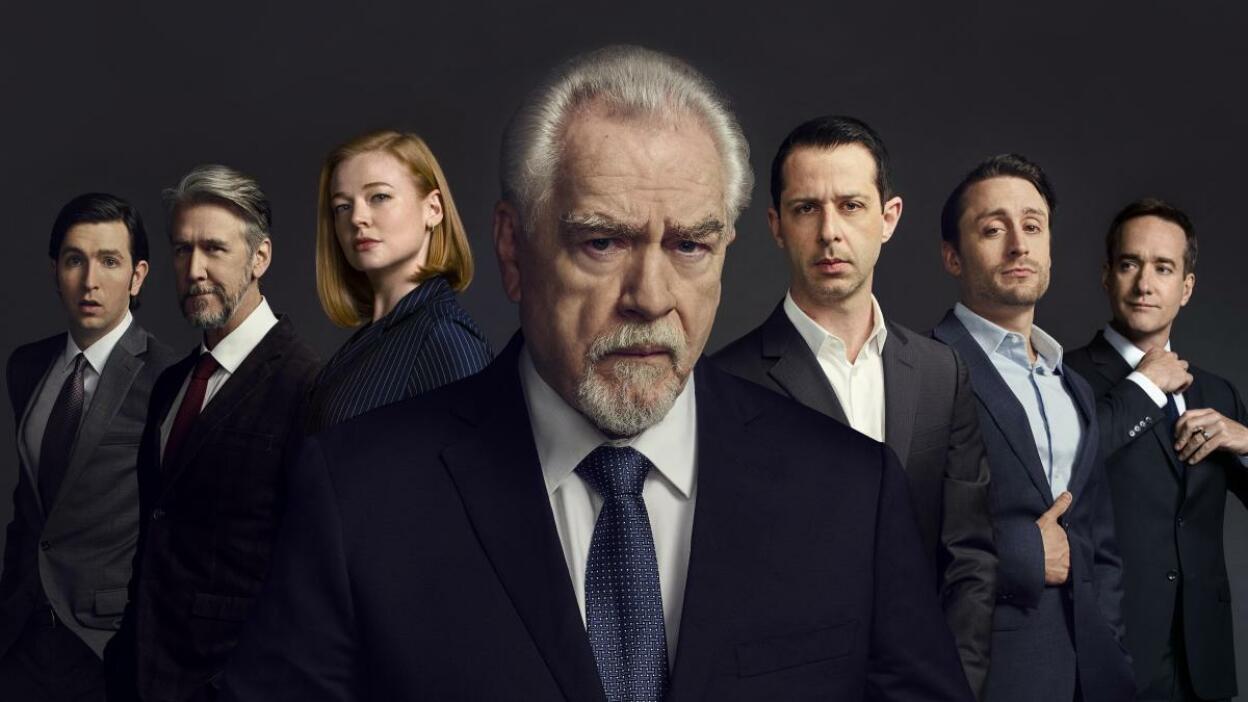
Five psychological truths of Succession
Are the characters in Succession bad people or are they normal people in a bad situation?
I would argue that it’s the latter. While being a billionaire is rarely defined as ‘bad’, being surrounded by cunning, untrustworthy people is fundamentally crazy-making.
So what can we learn from this mythic saga where we see characters pivot and counter-pivot on the discordant merry-go-round of corporate America? So much. Succession is human nature writ large. It could just as accurately be called Survivor. What we see is people acting from their base, baby brain need for attention and affection.
Despite the show’s lacquered shell of delectable wit and elegance, at its soft centre is a group of desperately sad, insecure people ruled by a terrifying psychopath. It should be compulsory viewing for workplace mental health officers.
Here are five psychological truths of Succession.
1. You become like the people around you
Case in point: Greg. He starts out as a clumsily grasping interloper trying to make it in the big city. Over time, he evolves into a much darker being who repeatedly sidelines his values in pursuit of personal gain. Like a palace eunuch, Greg’s lack of any real potency means he adapts quickly to toadying, trading intrigue and absorbing horrors with a view to cashing in later.
He’s an exercise in Darwinism, developing bluffing tactics and poisonous barbs to protect himself from danger.
2. Bullied people become bullies
The Roys diminish and ridicule Tom. Tom immediately takes that emotional hot potato and hurls it at Greg. This happens so sequentially that it’s dread-inducingly predictable.
In an almost touching moment in the final episode, Tom places a demeaning sticker of ownership on Greg’s forehead to show that he will not get fired under the new regime. Even in kindness, Tom can’t be kind. It’s about exerting downward pressure on someone less powerful to relieve the pain of the hands on his own head.
3. Distrust feeds distrust
Shiv Roy is a weather vane of trust. There are so many moments when you can see that she wants to trust Tom, or Logan, or her brothers. There’s a chink. A glint of hope. And then the Hurricane shutters come down as she activates her defences. Each Roy sibling has a redeeming feature, and Shiv’s is that she wants to trust people.
In the dog fight that is her family dynamic, her ability to trust anyone is eroded to such a point that she pre-betrays people like a chess master playing multiple moves ahead.
4. Seeking love from a narcissist will hollow you out
Narcissists love conditionally. Even when Logan rescues Kendall from the criminal repercussions of killing someone, it’s so that he has a blackmail advantage. He knows Kendall is coming for the crown so the more damaging intel he has, the better. Every fatherly act has a rotten core, and it’s this – this playing off, undermining and manipulating – that keeps his children striving so vehemently. Withholding love is a surefire way to get people to dance, but like St Vitus’, it’s a joyless, excruciating jig that eventually kills you.
5. At a certain point, wealth becomes irrelevant
It’s only outsiders that relish the spoils of wealth. Peter ‘fizzing like cheap prosecco’, Willa’s mum loading up her plate, Tom admitting that he likes nice things. The Roys enjoy mocking other people’s enjoyment of their bounty and yet fail to enjoy it themselves.
There are so many times when they are in impossibly beautiful places – Lake Como, a mountain top in Sweden, the astonishing homes of their family and peers – and they are blind to it all, focusing entirely on their inner turmoil and the machinations of whatever political play is at hand.
Up to a certain point, money has a significant impact on your quality of life. Beyond that, it’s all gravy. For the Roys, the sums in questions are so grotesquely unspendable that they become irrelevant.
So that’s my analysis. What did you learn about human nature from Succession?






The slow & steady transformation of Greg has been a highlight of the series. All those moral dilemmas & angst about doing the right thing has receded as he’s been spending too much time around sociopaths. Nietzsche put it best saying “be careful when you gaze into the abyss as the abyss will gaze back at you.”